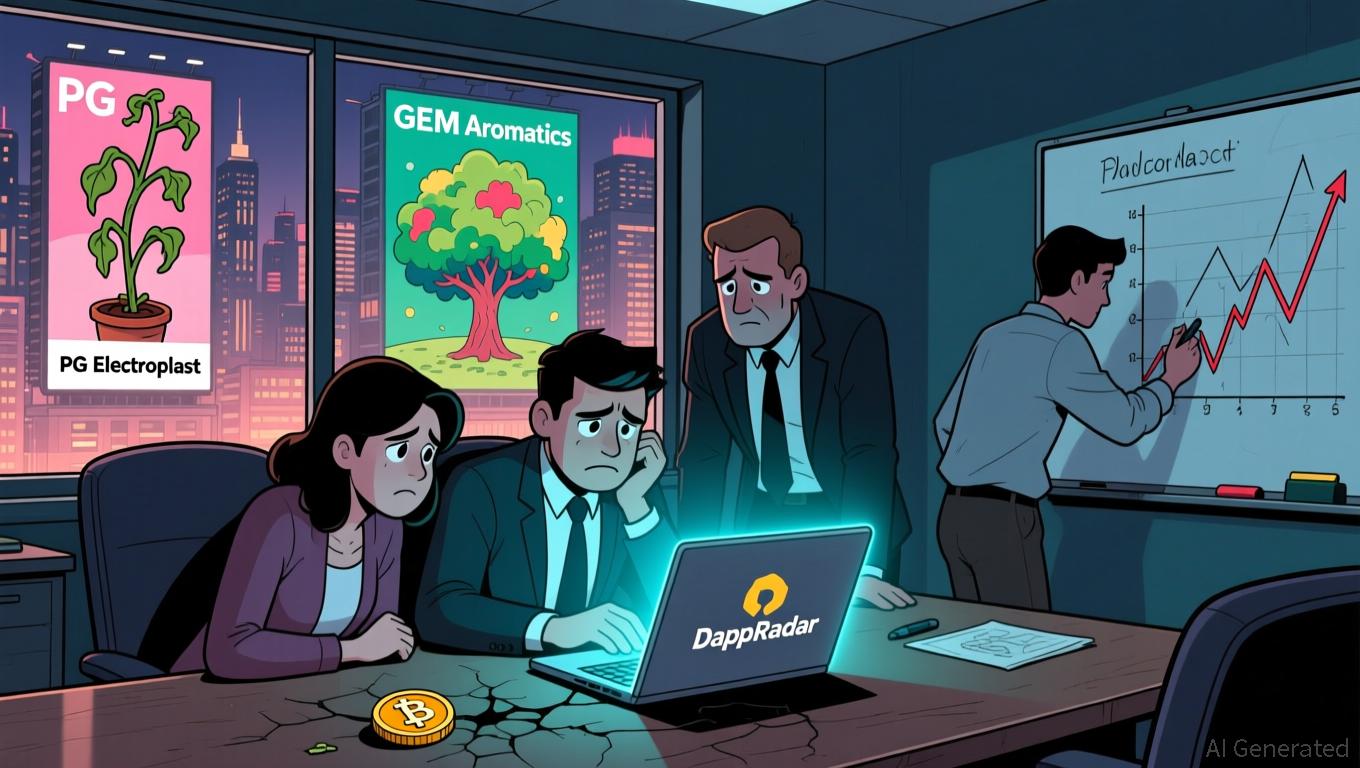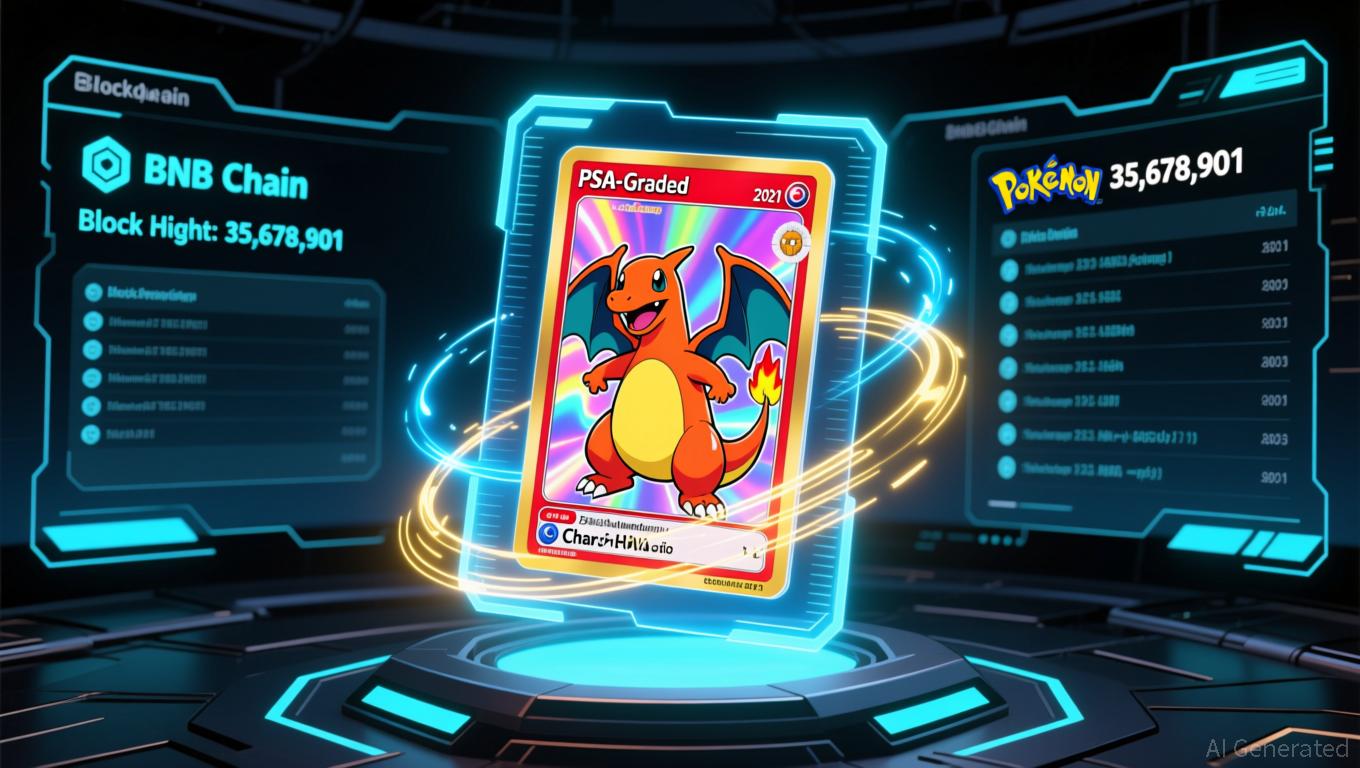DappRadar's Shutdown Reflects Challenges Faced by the Industry Amid Market Volatility
- Web3 analytics firm DappRadar announced its shutdown due to "financially unsustainable market conditions," causing its RADAR token to drop 30%. - Companies like PG Electroplast and GEM Aromatics reported revenue declines amid U.S. tariffs, GST changes, and raw material costs, reflecting broader economic challenges. - Geox cut 2025 sales forecasts by high single digits after 6.2% year-to-date revenue fall, while cost cuts helped stabilize its EBIT margin. - Tech stocks face volatility: Nvidia downgraded a
DappRadar, a prominent name in Web3 analytics, has announced it will soon cease operations, marking a significant departure from the DApp monitoring industry after seven years. Founders Skirmantas Januškas and Dragos Dunica
DappRadar’s closure comes amid a series of strategic shifts by companies facing economic challenges. For example, PG Electroplast, a leading provider of electronic manufacturing services (EMS) and plastic molding,

The difficulties faced by these organizations illustrate a global economic environment shaped by geopolitical instability, evolving regulations, and changing consumer preferences. For instance,
As investors reconsider their long-term commitments, the RADAR token’s performance has become central to debates about the sustainability of Web3 analytics businesses. The token’s steep fall reflects wider concerns among investors about the prospects for blockchain analytics.
Market volatility is also affecting technology stocks, prompting analysts to reassess their positions in fast-growing firms.
DappRadar’s closure marks a pivotal moment for the Web3 analytics industry, joining a broader movement of companies adjusting to an environment defined by unpredictability. Across sectors from manufacturing to cloud technology, businesses are striving to balance innovation with financial discipline, navigating a landscape shaped by regulatory, economic, and technological shifts.
Disclaimer: The content of this article solely reflects the author's opinion and does not represent the platform in any capacity. This article is not intended to serve as a reference for making investment decisions.
You may also like
Injective’s DeFi repurchase strategies reflect the confidence-building actions commonly seen in traditional financial markets
- Injective Protocol (INJ) will launch community buybacks starting Nov 16, funded by treasury reserves to reward long-term tokenholders. - The move mirrors traditional market trends like Niagen's $10M buyback and New Mexico's 30-year dividend streak to stabilize investor confidence. - On-chain auctions will ensure transparency, aligning with DeFi's recovery from regulatory uncertainties and CNB

Zcash Latest Updates: ZEC Shorts Reduced by $8M, Yet a $21M Deficit Threatens on Hyperliquid
- Hyperliquid's largest ZEC short reduced $8M exposure but still faces $21.75M unrealized losses amid volatile price swings. - ZEC short liquidations hit $17.91M as 25% price surge triggered broader $327M market liquidations in 12 hours. - The position's liquidation price rose to $1,111 while maintaining 245% floating losses on $74.35M leveraged exposure. - The strategy mirrors a $25M POPCAT token manipulation case, highlighting risks of liquidity imbalances on crypto derivatives platforms. - ZEC's $22.29M
PENGU USDT Sell Alert and What It Means for Stablecoin Approaches
- Stablecoin market growth to $4 trillion by 2030 faces risks exposed by 2023-2025 de-pegging events, highlighted by PENGU's volatile performance. - PENGU's 12.8% November 2025 surge masked structural weaknesses shown through Fibonacci levels, weak OBV/MACD metrics, and conflicting on-chain flows. - UST/LUNA and USDC/SVB collapses forced institutions to adopt predictive analytics and automated risk monitoring for stablecoin-linked assets. - Regulatory frameworks like EU MiCA aim to prevent opaque stablecoi
BNB News Today: BNB Chain Integrates Classic Collectibles and Blockchain Through Tokenized Charizard Cards
- BNB Chain's SuperSuperRare launches a Gacha Point Leaderboard, tokenizing a PSA-graded Charizard Pokémon card as RWA. - Users can repurchase, trade, or redeem physical cards, bridging traditional collectibles with blockchain utility via FMV-based rankings. - Binance's partnership with BlackRock to tokenize U.S. Treasuries expands RWA adoption, enabling yield generation on custodied assets. - Collaborations like mXRP and institutional yield tools highlight BNB Chain's strategy to merge traditional and dec
